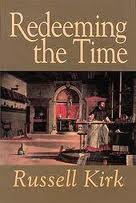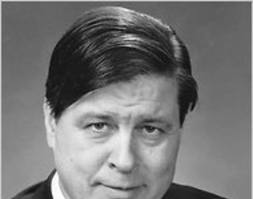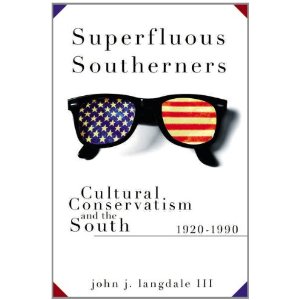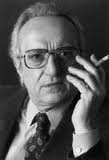
Eugene Genovese on Russell Kirk

Historian Eugene Genovese recently passed away. Thus, Genovese and his writings have been on my mind as of late. I noticed that the Imaginative Conservative has re-published a review Genovese wrote of Russell Kirk's Redeeming the Time. The review can be accessed here.
- Details
- Category: Recommended Reading Recommended Reading
- Published: 02 October 2012 02 October 2012
- Hits: 4955 4955
The Late, Great Joe Sobran

Paul Gottfriend alerts reader to a forthcoming book, Joe Sobran: The National Review Years. It appears to be near publication, and should be a treasure of Sobran's writings. I have recommended Sobran elsewhere. He was one of the most gifted writers of his era, and someone will at some point (hopefully) write "the book" on Sobran. He was a wonderful writer. I look forward to this collection of his writings. Gottfried's piece can be read here.
- Details
- Category: Recommended Reading Recommended Reading
- Published: 02 October 2012 02 October 2012
- Hits: 4139 4139
Superfluous Southerners

Congratulations to my friend, Jay Langdale, on his new book, Superfluous Southerners: Cultural Conservatism in the South, 1920-1990, to be published in November, 2012. This promises to be a wonderful book. Here is a summary from the publisher:
In Superfluous Southerners, John J. Langdale III tells the story of traditionalist conservatism and its boundaries in twentieth-century America. Because this time period encompasses both the rise of the modern conservative movement and the demise of southern regional distinctiveness, it affords an ideal setting both for observing the potentiality of American conservatism and for understanding the fate of the traditionalist “man of letters.” Langdale uses the intellectual and literary histories of John Crowe Ransom, Donald Davidson, and Allen Tate—the three principal contributors to the Agrarian manifesto I’ll Take My Stand—and of their three most remarkable intellectual descendants—Cleanth Brooks, Richard Weaver, and Melvin Bradford—to explore these issues.
- Details
- Category: Recommended Reading Recommended Reading
- Published: 01 October 2012 01 October 2012
- Hits: 7779 7779
Eugene Genovese, R.I.P.

Eugene Genovese passed away on September 26, 2012, at 82 years of age. Those who have read him know of his excellent scholarship. I first read his The Southern Front: The Achievements and Limitations of American Conservatism several years ago, and then just recently read his A Consuming Fire: The Fall of the Confederacy in the Mind of the White Christian South. Both were excellent, and I will undoubtedly return to them over time. For students (and others!) interested in learning and reading, it is essential to read folks like Genovese: persons willing to take on this or that orthodoxy, and to question (at least some of!) the received wisdom. Paul Gottfried reflects on his life and work here.
- Details
- Category: Recommended Reading Recommended Reading
- Published: 28 September 2012 28 September 2012
- Hits: 4441 4441
William J. Dumbrell and the Covenant with Noah

I am thankful that when I first begin to read and study in the area of biblical theology that I discovered the work of William J. Dumbrell. He is very helpful, and I pray he continues to write and publish for many years. Attached is a summary of his article on the covenant with Noah, an article published in 1979. I summarized the article for my own purposes when I was first working through many issues in biblical theology. He wrote a number of articles during that time period which are worth tracking down. Many of his thoughts on the "big picture" of biblical theology can be found (in a tad more clear and accessible form, imho), in his The Search for Order: Biblical Eschatology in Focus.
- Details
- Category: Recommended Reading Recommended Reading
- Published: 27 September 2012 27 September 2012
- Hits: 3583 3583
Thomas Weinandy and Impassibility

A number of years ago I stumbled upon Thomas Weinandy's book, Does God Suffer (Notre Dame, 2000). To my mind it is the best thing available on the impassibility of God. In particular, I have re-read chapter 8, "The Incarnation--The Impassible Suffers", numerous times. Reading this chapter alone is like taking a first-rate seminar on Christology. If you can find a copy, this book is highly recommended. Here is an essay by Weinandy that appeared in First Things magazine back in 2001, summarizing the heart of his argument.
- Details
- Category: Recommended Reading Recommended Reading
- Published: 24 September 2012 24 September 2012
- Hits: 3322 3322